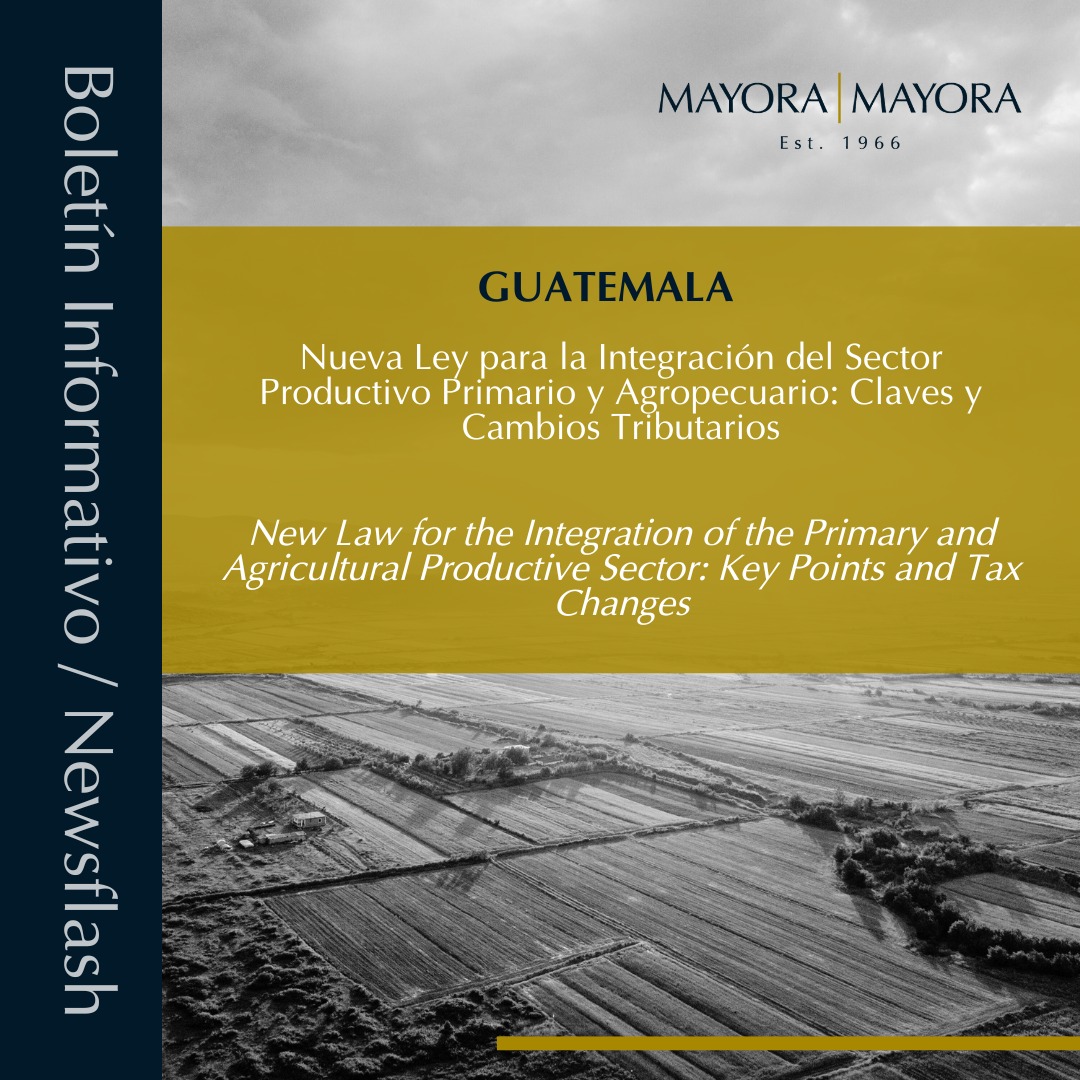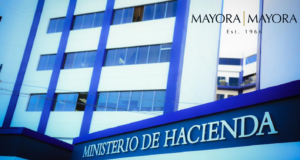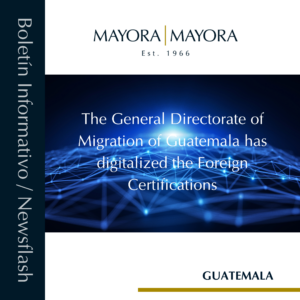In December 2024, the Official Bulletin published Decree 31-2024 of the Congress of the Republic, an Act for the integration of the primary and agricultural productive sector, which will take effect on April 8, 2025.
This new legislation seeks to incorporate a consumption chain (primary chain) that, in the legislator’s view, were either not complying with tax obligations or doing so through the special regimes created by Decree 7-2019 as amendments to the Value Added Tax (VAT) Act.
The new Act is based on assuming that this chain starts with small producers who sell their products to collection centers, which sell them to intermediaries (marketers and buyers), and these in turn sell them to supermarkets, markets or restaurants, where they finally go to the final consumers.
Thus, it intends to regulate or regularize small agricultural producers, beekeepers, non-industrialized cattle and artisans (the primary chain), for them to pay taxes through the following regimes:
- Special Regime for Production and Commercialization of Agricultural Products and Handicrafts produced in Guatemala.
- Special Regime for the Production and Commercialization of Livestock, Hydrobiological and Beekeeping Products.
Essentially, these are simplified taxation regimes, such as the small taxpayer regime or those created in 2019 (the latter repealed by the new Decree). Therefore, this Act does not apply to what it calls “large companies”, taxed under the general VAT regime.
To join these regimes, interested parties must have an estimate of their production, supporting documentation of ownership or possession of the land or site where they operate, a fiscal solvency, the wage book and the payrolls reported to the IGSS.
Once registered, they will be exempted from Income Tax and Solidarity Tax or any other tax creditable to Income Tax, as well as from the obligation to charge VAT, and exempted from bearing the repercussion that other taxpayers may make to them.
Instead, they must pay a monthly tax of 1.5% on their gross sales, generally. Intermediaries of bovine products in the livestock sector will be taxed 10% on their profits. Exporters of livestock, hydrobiological and apiculture products will pay 2% of their gross sales when they are made in standing stock.
Affiliates of these regimes are excluded from the application of VAT. Therefore, when a VAT taxpayer sells to them, it must invoice them for VAT, which they will not have to pay since they are exempt. Instead, they should issue an exemption certificate. If this is not the case, the VAT taxpayer must take the necessary measures to avoid having to report a tax that has been passed on without having been paid. When contracting with taxpayers affiliated to these regimes, the exemption certificate must be requested.
In general, if the affiliates to these regimes do not issue the exemption certificate to VAT taxpayers, they will not pay them for the invoiced service. Then, from a practical perspective, they could void the invoice (articles 17 and 20 of the VAT Law), ceasing to recognize sales (for VAT purposes) and income (for Income Tax purposes). From a technical perspective, they could recognize such situation as an account receivable, which could be used as a deductible expense under the uncollectible accounts line item, complying with the requirements of the Tax Update Act.
In addition to creating these regimes, the Decree also amends the VAT Act and the Tax Code.
Among the reforms to the VAT Act, sales of shrimp, salt, bananas, plantains and melons, which were originally intended for export, are exempted from VAT to persons who sell these products at retail in cantonal and municipal markets and collection centers. Regular exporters will not be able to recover the tax credit of these exempt sales by means of refund claims, since they will not have a customs export declaration and will have to assume it as a cost.
The limit to remain affiliated to the small taxpayer regime is also modified, which is now the annual income equivalent to 125 non-agricultural monthly minimum wages. This is relevant, since taxpayers that invoice services or sales for amounts within the new range could be included in this regime. In such cases, contracting with them will not generate a tax credit for VAT purposes, but will generate an expense and deductible cost for Income Tax purposes.
The Act also amends article 120 of the Tax Code. Among the most important modifications is the one requiring use of the Tax Identification Number (NIT, by its Spanish acronym) in all legal relations, including tax relations, so that tax documents may no longer be issued with the words “CF” or “final consumer”.
It is also important to highlight that the obligation to inform the Tax Administration of the names of the shareholders or partners of companies is incorporated, including each time there is a change in them.
The registries of persons (legal entities and individuals) must inform the Tax Administration about changes, updates and registration acts with respect to taxpayers in their records.
Finally, the georeferencing of the centers of operations, businesses, commercial establishments or places where a taxpayer or responsible person performs its taxable activities, is added as possible information of the registry. This information must be provided at the request of the Tax Administration.
At Mayora & Mayora we are prepared to assist you in this and any other tax matter. Do not hesitate to contact us for any assistance we may provide.





